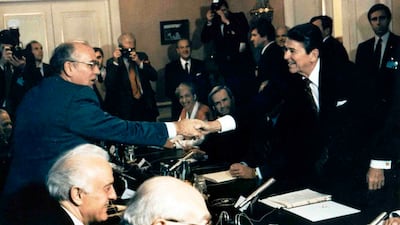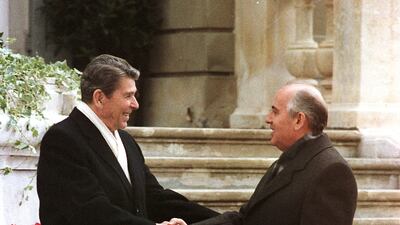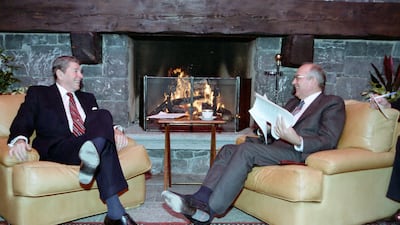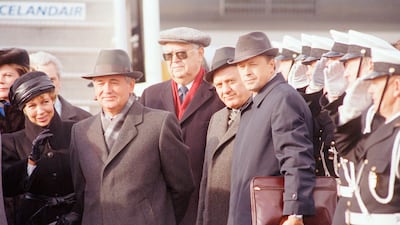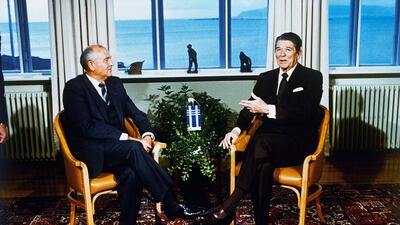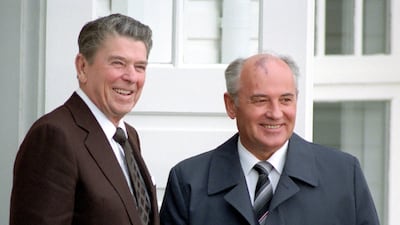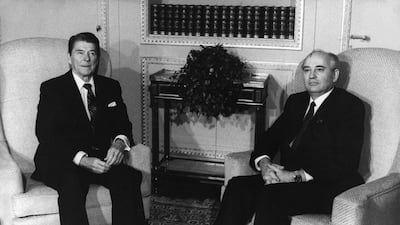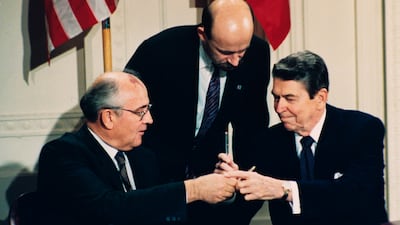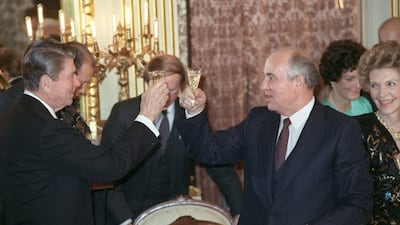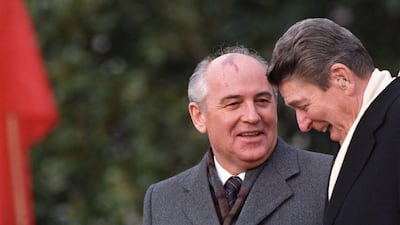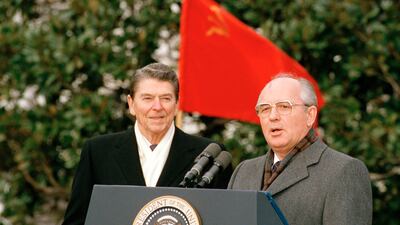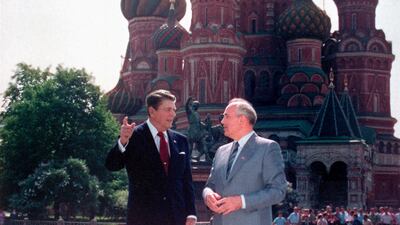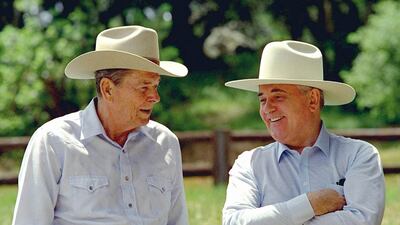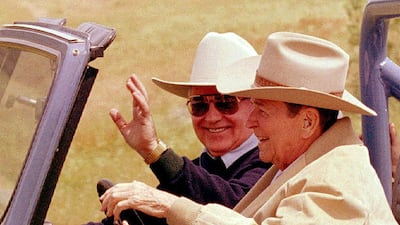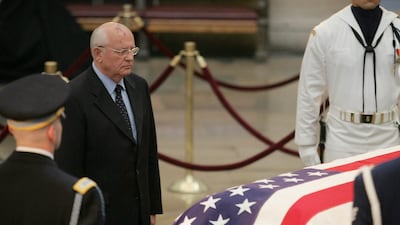Ronald Reagan and his administration were sceptical of Mikhail Gorbachev when he became leader of the Soviet Union in 1985, but numerous high-profile meetings led to the development of a unique friendship between the two leaders that helped end the Cold War.
The former US president once bemoaned how he had struggled to develop relationships with Soviet leaders because “they kept dying on me”. But in Gorbachev, Reagan found a man different from his predecessors.
“It was General Secretary Gorbachev with whom President Reagan would finally have that long-sought opportunity to form a relationship which led to a lessening of tension between Washington and Moscow, and eventually to meaningful arms reduction,” said Fred Ryan, chairman of the board of the The Reagan Foundation and Institute.
A series of summits beginning in 1985 forged a personal connection between Reagan and Gorbachev, eventually culminating in an agreement on nuclear arms control.
The first meeting between the two leaders, in Geneva in 1985, was key for building trust, even though no major progress on nuclear disarmament was made.
“I did not know when I left for that meeting in Geneva, I would eventually call Mikhail Gorbachev a friend. I did not know what to expect,” Reagan later wrote in his autobiography.
Their 1986 summit in Reykjavik, Iceland, ended when arms control discussions broke down after Reagan refused to drop his Strategic Defensive Initiative — nicknamed the “Star Wars” programme.
Though the talks abruptly collapsed, the progress leading up to the summit resulted in the 1987 Intermediate-Range Nuclear Forces Treaty, which marked the first time the US and Soviet Union agreed to reduce their nuclear arsenals.
Gorbachev himself credited the Reykjavik Summit as a turning point in the Cold War.
Subsequent summits in Moscow and Washington, along with dozens of letters exchanged between the two leaders, cemented the friendship between the actor-turned-politician and the communist stalwart.
Reagan used to delight in telling jokes about Soviet Russia, sometimes describing Gorbachev as having enjoyed the humour.
In his final year in office, Reagan said Gorbachev “deserves most of the credit” for the cooling of Soviet-US tension.
